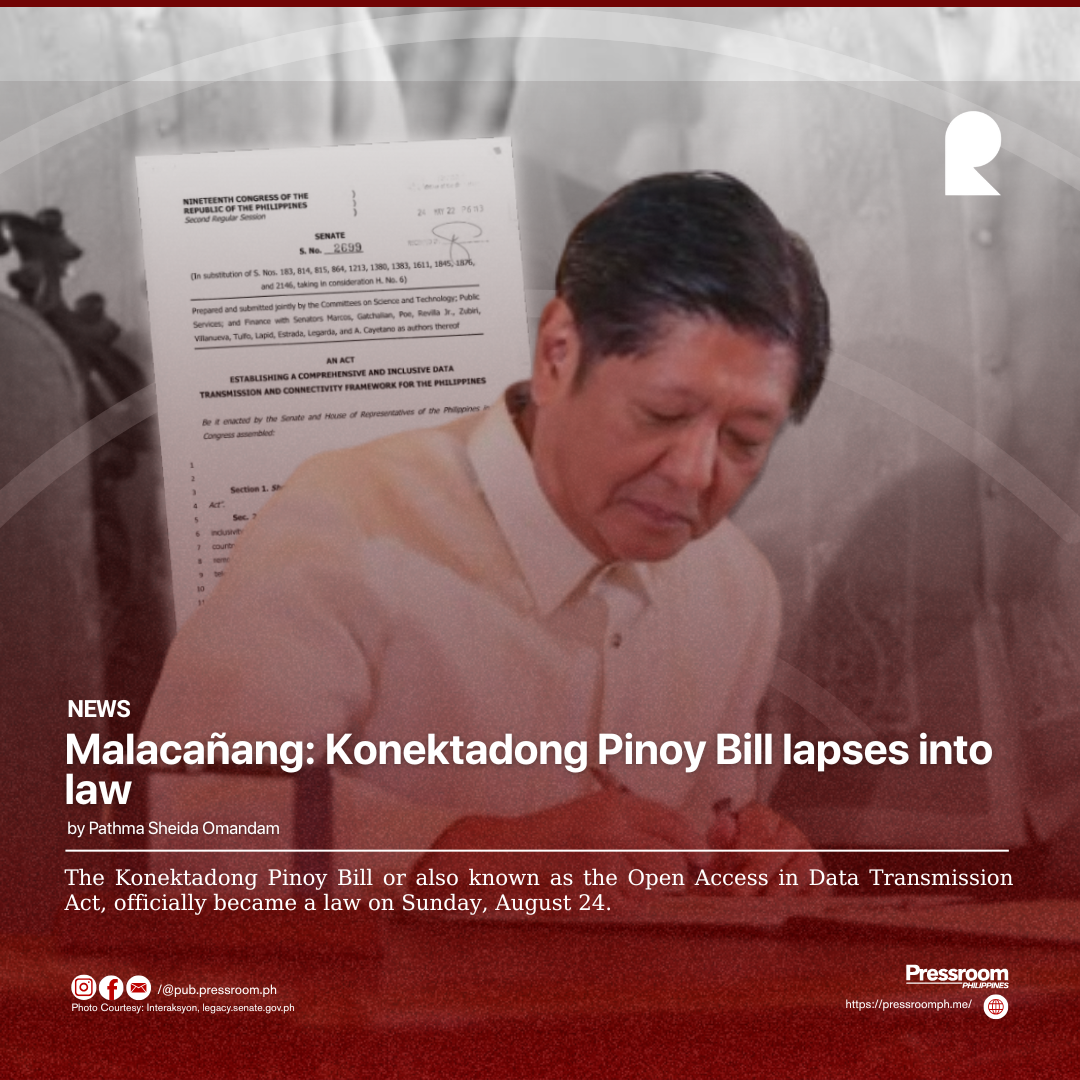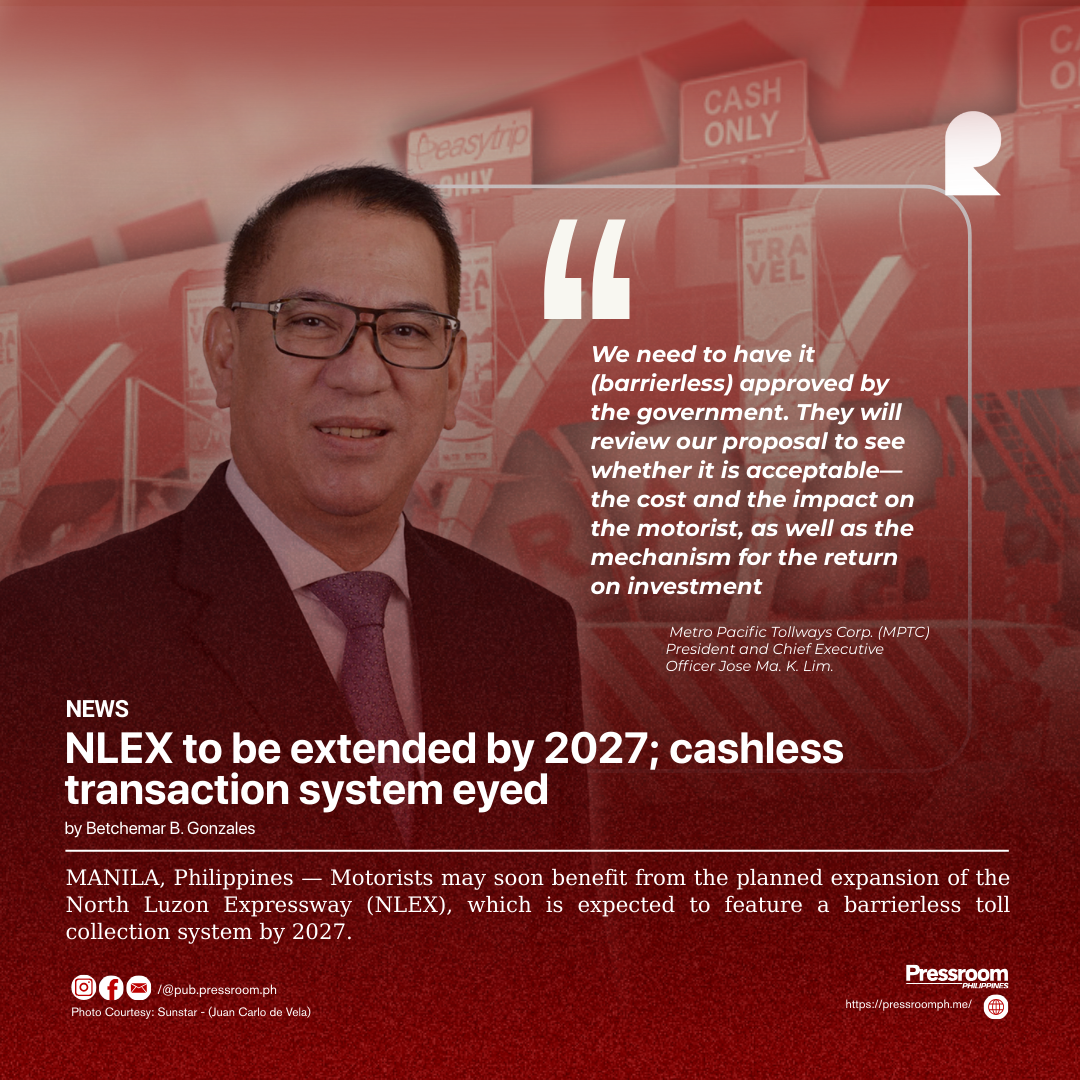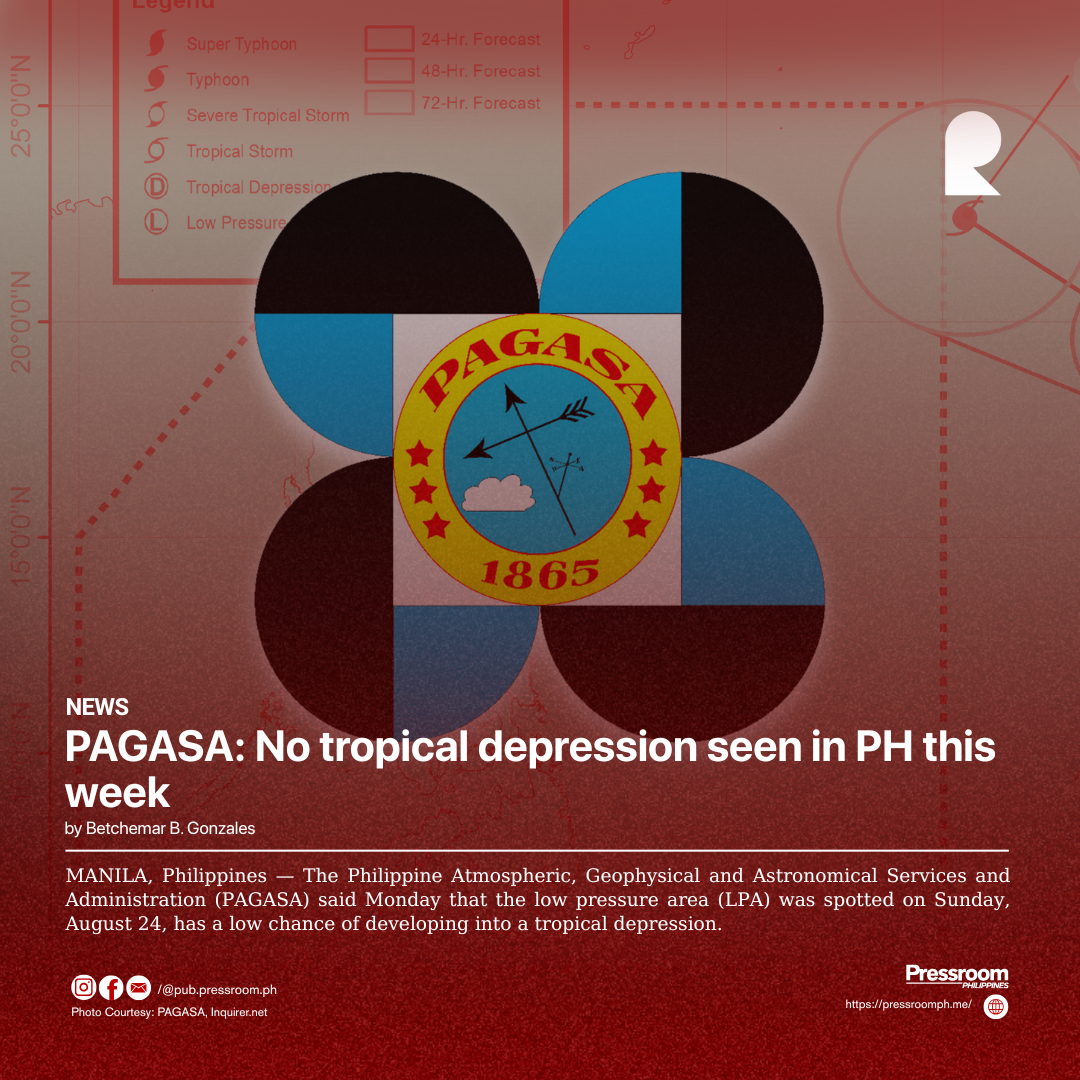The Konektadong Pinoy Bill or also known as the Open Access in Data Transmission Act, officially became a law on Sunday, August 24.
This was confirmed by Palace Press Officer and Presidential Communications Undersecretary Claire B. Castro in a text message on the same day.
The law took effect without the signature of President Ferdinand “Bongbong” Marcos Jr., as mandated under Section 27 (1), Article VI of the 1987 Constitution.
Under this provision, if the President neither signs nor vetoes a bill within 30 days, it automatically lapses into law.
The bill was previously ratified by Congress in June and was identified as one of the Marcos administration's priority measures.
However, the President did not mention its status during his fourth State of the Nation Address.
The Konektadong Pinoy Bill seeks to establish an open-access policy that will make internet use more accessible by allowing new players to enter the data transmission sector without the need for a legislative franchise.
Supporters of the law argue that it will help ensure more efficient, stable, and affordable internet services nationwide, particularly in remote areas.
However, the Philippine Chamber of Telecommunications Operators (PCTO) warned that it may weaken regulations, posing a risk to national security and could also allow big telco companies to dominate the market.
DICT Secretary Henry Rhoel G. Aguda said the agency is now working on the bill’s implementing rules and regulations (IRR), which are expected to be released within 60 days.






